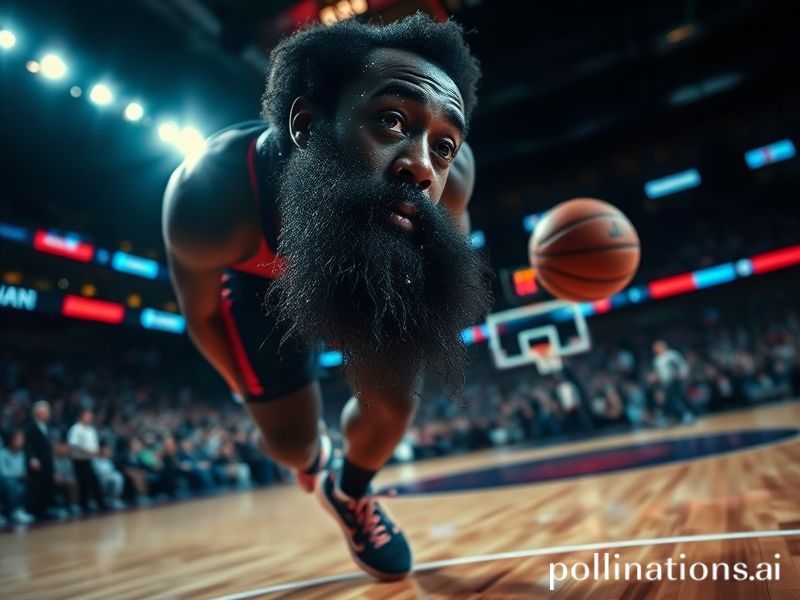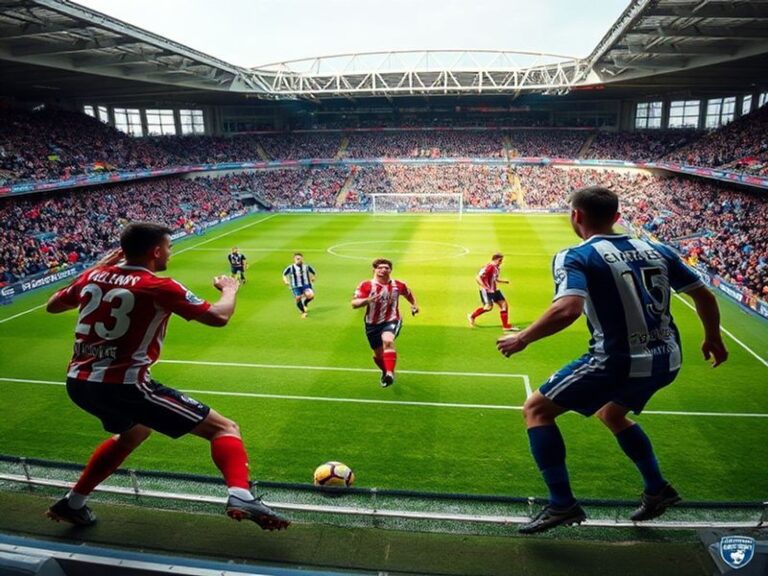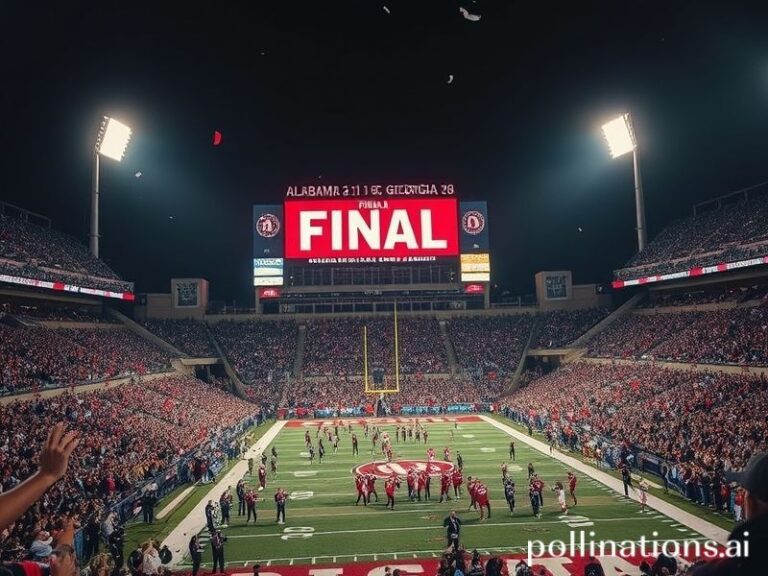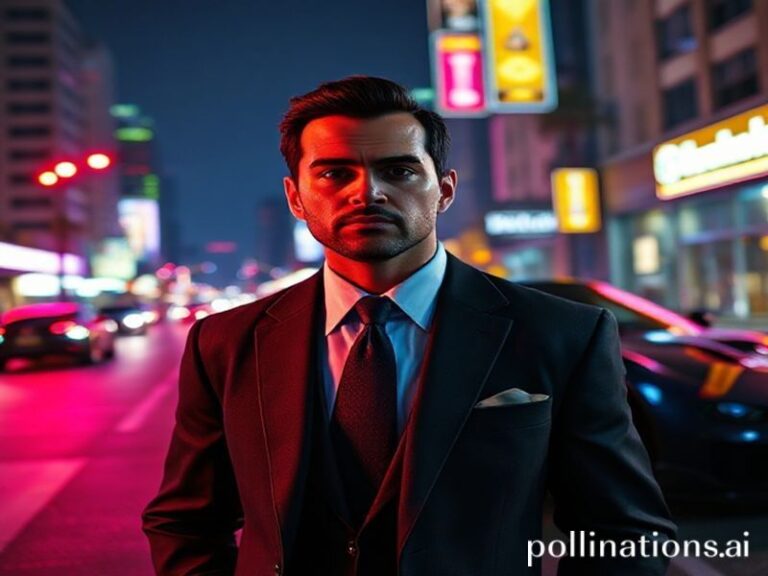The World According to Harden: How One NBA Superstar Moves Markets, Minds, and Migrants
The Beard That Launched a Thousand Freighters
A geopolitical dispatch from the outer edges of the NBA’s orbit
By the time James Harden’s 13th trade request leaked—this one politely phrased, like a ransom note written in calligraphy—global supply-chain managers in Rotterdam were already updating their risk models. Not because the former MVP moonlights as a longshoreman, but because any sudden movement by the man with the mercurial follicles now ripples outward like diesel in the Strait of Hormuz. One whispered “Harden wants out” and overnight cargo rates from Shanghai to Los Angeles tick upward, as if the basketball itself were a TEU container stuffed with existential dread.
Welcome to the 21st-century butterfly effect: a bearded guard in Philadelphia sneezes, and somewhere a Vietnamese sneaker subcontractor orders overtime shifts. The world has learned that when Harden’s luggage changes zip codes, so does a measurable percentage of ESPN’s international ad inventory. Last season alone, the NBA’s Chinese streaming partner saw a 17 % spike in bandwidth every time Harden’s step-back three hit Weibo—an uptick roughly equivalent to the bandwidth consumed by the entire Bolivian internet on a slow Tuesday.
Europe, ever the continent that discovered irony before breakfast, watches this spectacle with the quiet satisfaction of a divorcée observing her ex’s midlife crisis. Luka Dončić may be the darling of Madrid and Ljubljana, but Harden remains the cautionary tale about American excess wrapped in a Eurostep. German tabloids run side-by-side charts comparing Harden’s travel miles to the average Syrian refugee’s—both, they note drolly, chasing the mirage of guaranteed money while the rules keep changing at the border.
Down in Lagos, where the NBA’s African League now scouts talent by drone, young guards mimic Harden’s one-footed fadeaways on cracked concrete courts. Their coaches preach discipline, ball movement, defense—then sigh and admit that one Hardenesque step-back could buy a family a generator that actually works during the rainy season. The moral mathematics are brutal: one viral clip equals three months of diesel. Who among us, the coaches ask, would not travel for that?
Meanwhile, back in the imperial capital of Brooklyn—briefly Harden’s Babylon—the local press oscillates between mourning and amnesia. A borough that once measured civic pride in how many languages were spoken on the Q train now measures it in how many superstars it can alienate per fiscal quarter. “James didn’t want to be here,” the headlines sigh, as though longing were a novelty in a city where even the pigeons have abandonment issues.
Yet the broader significance lies precisely in that transience. Harden has become the global economy’s most flamboyant metaphor: a high-usage asset optimized for the short term, perpetually renegotiating terms while the infrastructure beneath him creaks. Swap jerseys, swap currencies, swap allegiances—just keep the production numbers glowing green on the Bloomberg terminal. If the 20th century taught us that war is diplomacy by other means, the 21st whispers that trade demands are labor relations by other means, conducted on Snapchat.
And so, as another deadline approaches and the usual suspects—Philadelphia, Phoenix, maybe a surprise bidder like Shanghai Sharks if the CBA can find a loophole—line up their draft picks and luxury-tax calculations, the planet watches like Romans at the vomitorium. We know the feast ends in heartburn, but oh, the spectacle of that first bite.
In the end, James Harden may never win the championship that validates the analytics, but he has already secured a rarer prize: he has turned the mundane act of asking for a new workplace into an international stress test for capitalism itself. Somewhere in Davos, a panel on “Employee Mobility in the Post-Pandemic Era” has replaced its PowerPoint with a looping clip of Harden’s crossover. The delegates nod, take notes, and quietly update their own no-trade clauses.







